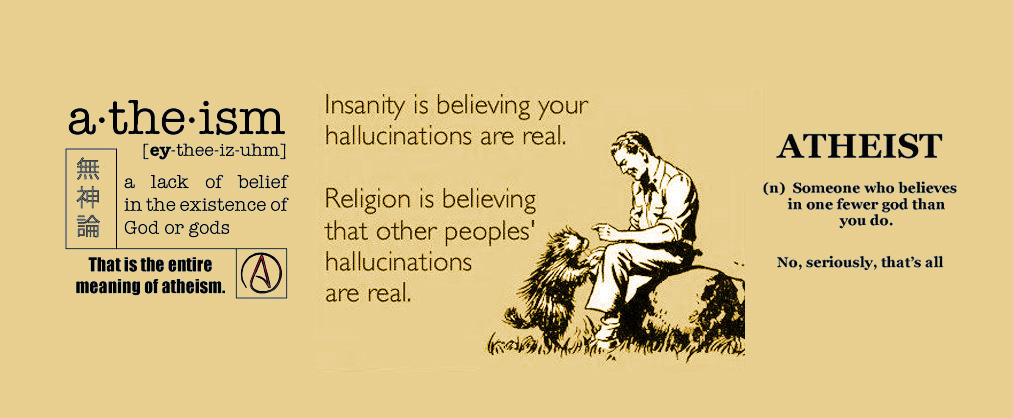For those who don’t know, the prefix “A” means without. Here are several examples to help demonstrate that point.
Abiotic – without any life
Antibiotic – against life
Prebiotic – before life
Moral – if something is moral, we generally consider it having a positive effect.
Immoral – if something is immoral, we generally consider it having a negative effect.
Amoral – it has no effect, or, is WITHOUT effect or relevance to morality.
Bisexual, heterosexual, homosexual, no matter how you define these three, asexual is without sexuality.
Agnostic – without knowledge of
Gnostic – having knowledge of
Theism – having belief in god
Atheism – WITHOUT belief in god (lack of belief)
Antitheism – against belief in god
For the purpose of these discussions we must have an honest recognition of “hard atheism” as the assertion that there is no god. This position goes beyond simply not believing in god.
It is important to accept that vast majority of atheists fall into the category of simply not accepting the proposition of the traditional creator god existing as true or likely true, because they are unconvinced.
As a definition for atheism, without belief in god, is almost always the first or second definition found in any dictionary and as such is a valid use of the word.
Also, just because a person says “I am not an atheist,” that doesn’t make it true. What can also be true is that person chooses not to self-identify as an atheist, or perhaps they too have a misunderstanding of the word atheist.
Adding the prefix “a” means atheism is defined as “without a belief in a god or gods” is not the same as Anti-theism, not the same as making the positive claim that there are no gods. Atheism is simply a lack of belief in claims of existence of a god or gods. Using the court room analogy, someone can be found “not guilty” but that doesn’t mean we know he is innocent. the verdict only refers to whether the jury was convinced of guilt. You can be unconvinced of guilt and still not be certain of innocence. If god were on trial accused of existing, I would not find him guilty based on the evidence.
By not accepting the claim that “a god must exist” and instead adopting a default position of “we don’t know that a god exists,” we cannot say “we are convinced” that a god does exist, and we are by definition, atheists if we are not convinced to believe in god.
The burden of proof falls on those who make a claim to support it, not those who don’t believe the claim. Do you believe claims that bigfoot, fairies, the Loch Ness monster, or leprechauns really do exist? If your answer is no, then you are the equivalent of an atheist with regard to each of them. People who say if you don’t believe “then where is your proof?” are shifting the burden of proof away from those who make the claim in which you don’t believe.
The default position on accepting a claim like this (an extraordinary claim) is not to believe it until it is demonstrated to be true. If this were not the case, then as there is no evidence to prove they don’t exist, you would be required to believe these claims and many others, some of which may even be in direct conflict, as is the case when accepting all the different unfalsifiable god claims from various cultures and religions around the world.
You can’t just believe them all, which is why the logical default position is not to believe any claim until it is shown to be true.










